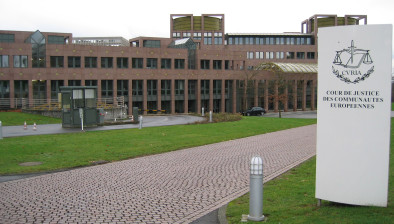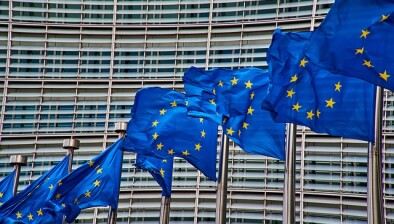EU plans to hold Big Tech companies accountable for harmful content gather pace

Ursula von der Leyen
EU plans to hold major online platforms like Facebook and Twitter accountable for illegal and harmful content are gathering pace after political agreement was reached between the European Parliament and member states over the weekend.
The Digital Services Act (DSA), proposed by the European Commission in December 2020, aims to “rebalance the rights and responsibilities of users, online intermediaries, including online platforms as well as very large online platforms, and public authorities”.
It contains EU-wide due diligence obligations that will apply to all digital services that connect consumers to goods, services, or content, including new procedures for faster removal of illegal content as well as comprehensive protection for users’ fundamental rights online.
Measures to counter illegal goods, services or content online include a mechanism for users to easily flag such content and for platforms to co-operate with so-called “trusted flaggers”, and new obligations on the traceability of business users in online marketplaces.
Meanwhile, users and civil society will be empowered with the possibility to challenge platforms’ content moderation decisions and seek redress, either via an out-of-court dispute mechanism or judicial redress, and there will new transparency measures for online platforms on a variety of issues, including on the algorithms used for recommending content or products to users.
Once formally adopted, the DSA will be directly applicable across the EU and will apply either 15 months from entry into force or from 1 January 2024, whichever is later. However, the provisions regarding very large online platforms and very large online search engines will apply within four months.
Speaking on Saturday, European Commission president Ursula von der Leyen said: “Today’s agreement on the Digital Services Act is historic, both in terms of speed and of substance.
“The DSA will upgrade the ground-rules for all online services in the EU. It will ensure that the online environment remains a safe space, safeguarding freedom of expression and opportunities for digital businesses. It gives practical effect to the principle that what is illegal offline, should be illegal online. The greater the size, the greater the responsibilities of online platforms.
“Today’s agreement – complementing the political agreement on the Digital Markets Act last month – sends a strong signal: to all Europeans, to all EU businesses, and to our international counterparts.”
Margrethe Vestager, executive vice-president for a Europe Fit for the Digital Age, added: “With the DSA we help create a safe and accountable online environment. Platforms should be transparent about their content moderation decisions, prevent dangerous disinformation from going viral and avoid unsafe products being offered on market places. With today’s agreement we ensure that platforms are held accountable for the risks their services can pose to society and citizens.”
Thierry Breton, commissioner for the internal market, added: “With the DSA, the time of big online platforms behaving like they are ‘too big to care’ is coming to an end. The DSA is setting clear, harmonised obligations for platforms – proportionate to size, impact and risk.
“It entrusts the Commission with supervising very large platforms, including the possibility to impose effective and dissuasive sanctions of up to six per cent of global turnover or even a ban on operating in the EU single market in case of repeated serious breaches. EU institutions have worked hand in hand in record time, with determination and ambition to protect our citizens online.”







